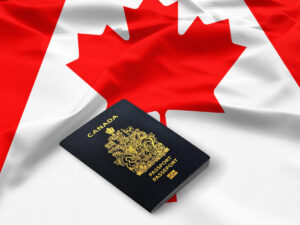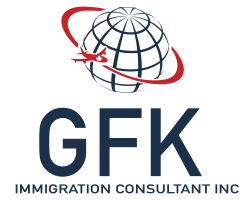Canadian Citizenship Revocation

Canadian citizenship represents a significant milestone for immigrants and long-term residents alike.
It is a status that offers a sense of belonging and legal rights within one of the world’s most respected nations, with proud possession of the world’s one of the strongest passports.
However, under certain circumstances, this status can be revoked, leading to significant consequences for the individual involved.
This article delves deep into the process of Canadian citizenship revocation, examining key factors that may lead to such an action, the legal framework, and the options available for those facing this situation.
Table of Contents
What is Canadian Citizenship Revocation?
Citizenship revocation is a legal process
It is not a decision taken lightly and is typically reserved for extreme cases such as fraud, serious criminal activity, or threats to national security.
The consequences of losing citizenship can be devastating, as individuals may also lose their permanent resident status and face deportation from Canada.
For individuals born in Canada, citizenship can only be voluntarily renounced by Canadians themselves.
However, those who obtained citizenship through naturalization or immigration may face revocation if found guilty of violating certain legal criteria.
Understanding the grounds for citizenship revocation is crucial, as it highlights the gravity of the matter and emphasizes the importance of adhering to Canadian laws and regulations.
8 Reasons That Can Lead to Citizenship Revocation

Citizenship in Canada is granted based on strict legal criteria, and any breach of these can lead to revocation.
Below are the primary factors that can result in the loss of Canadian citizenship:
1. Criminal Activities
Serious criminal offences, including terrorism, espionage, or treason, are significant grounds for revoking citizenship.
Individuals found guilty of engaging in such activities not only breach Canadian laws but also violate the principles of trust and loyalty that come with citizenship.
The Canadian government prioritizes national security and will revoke citizenship to protect the country and its people from those deemed a threat.
2. Fraudulent Acquisition of Citizenship
Providing false information or engaging in fraudulent activities during the immigration or citizenship application process is another common reason for revocation.
Misrepresentation may involve using forged documents, concealing a criminal past, or providing false statements about residency.
Fraud undermines the integrity of Canada’s immigration system, and anyone found guilty of such actions faces severe consequences.
3. Dual Citizenship Violations
While Canada allows dual citizenship, complications may arise if individuals acquire or maintain citizenship in another country without proper disclosure.
Mismanagement of dual citizenship, particularly in situations where the individual participates in criminal activities or fails to follow legal procedures, can result in the revocation of Canadian citizenship.
4. Involvement in Terrorism or National Security Concerns
Canadian law is aligned with global efforts to combat terrorism and threats to national security.
Individuals involved in activities that threaten the safety of the country or its citizens may face citizenship revocation.
Such cases are treated with utmost seriousness, and the Canadian government takes swift action to revoke citizenship if an individual is deemed a national security threat.
5. Military Service in a Foreign Army
Engaging in military service for a foreign country without proper authorization can lead to the revocation of Canadian citizenship.
Canadians who wish to serve in foreign military forces must seek legal guidance to avoid potential complications.
Participation in foreign military activities, particularly those that conflict with Canadian interests, can be grounds for citizenship revocation.
6. Loss of Permanent Residency
For naturalized citizens, maintaining permanent resident status is essential. Failing to meet residency requirements or violating terms of permanent residency can lead to the loss of citizenship.
This often occurs if an individual fails to fulfill their obligations as a permanent resident after gaining citizenship, resulting in revocation proceedings.
7. Serious Misconduct or Disloyalty
Acts of disloyalty or misconduct against Canada may also trigger revocation proceedings.
Actions that contradict the values and institutions of the country are considered a violation of the trust placed in a citizen.
The Canadian government may initiate revocation proceedings to safeguard national interests in such cases.
8. Procedural Non-Compliance
Failure to comply with the procedural requirements of citizenship, such as attending citizenship ceremonies or providing requested documentation, may lead to revocation.
While these issues may seem minor, they highlight an individual’s failure to meet legal obligations, and the Canadian government may take action to revoke citizenship in such cases.
The Legal Process of Citizenship Revocation
The process of citizenship revocation is complex and involves several legal steps. Understanding the procedural framework is essential for anyone facing this situation.
Step 1: Notice of Intent to Revoke Citizenship
The revocation process begins with the Canadian government sending a Notice of Intent to Revoke Citizenship.
This notice outlines the reasons for revocation and provides a summary of the case against the individual.
The recipient has the right to request that the matter be referred to the Federal Court for review within 30 days.
Step 2: Federal Court Proceedings
If the individual requests a review, the matter is taken to the Federal Court. The government must provide a Statement of Claim detailing why they believe the individual’s citizenship should be revoked.
The individual then responds by filing a Statement of Defence. This phase is legally intricate, and it is highly recommended to seek legal counsel to navigate the process effectively.
Step 3: Federal Court Decision
The Federal Court reviews the case and either upholds or dismisses the government’s allegations.
If the court finds the claims unsubstantiated, the matter ends, and the individual retains their citizenship.
However, if the court supports the government’s case, the revocation process proceeds.
Step 4: Governor in Council Decision
If the court supports the government’s case, the Minister submits a report to the Governor in Council recommending citizenship revocation.
The individual can make written submissions, which are attached to the report.
The Governor in Council reviews the report and determines whether revocation should be carried out.
If the decision is to revoke, an Order in Council formalizes the action.
Step 5: Judicial Review
If citizenship is revoked, the individual has the right to request a judicial review of the decision by the Federal Court.
This provides a final opportunity to challenge the revocation.
Legal Options and Support
If you or a family member is facing the revocation of Canadian citizenship, it is crucial to seek experienced legal counsel.
Citizenship revocation cases are complex, involving multiple legal procedures and potential financial consequences.
Legal professionals specializing in immigration law can provide valuable guidance, ensuring that your rights are protected and that you have a fair chance to challenge the revocation.
Protecting Your Canadian Citizenship
The revocation of Canadian citizenship is a serious legal matter with profound consequences.
Understanding the factors that can lead to revocation, the legal process involved, and the options available for challenging such decisions is essential for anyone facing this situation.
Honesty, compliance with Canadian laws, and maintaining permanent residency requirements are crucial to safeguarding your citizenship status.
If you have concerns about your citizenship status or are facing revocation proceedings, consult with an experienced legal professional to explore your options and protect your rights.
What Happens After Citizenship Revocation?
When citizenship is revoked, the individual may lose their permanent residency status, depending on the circumstances of their immigration history.
In cases where the individual committed fraud in both their permanent residency and citizenship applications, they may face removal from Canada altogether.
In some cases, if the revocation is due to an error in the citizenship application (such as misstating residency), the individual reverts to permanent resident status.
However, this transition can still pose challenges, as they may face allegations of inadmissibility if they concealed a criminal history or engaged in misconduct during their time as a permanent resident.
Can a naturalized citizen lose Canadian citizenship?
Yes, naturalized Canadians can lose their Canadian citizenship if they obtained it via false representation, fraud, or intentionally concealing material facts.
GFK Immigration
Gboyega Esan RCIC R708591
Phone: +1 (647) 225-0092
#Ontario #expressentry #immigration #immigrationnews #news #blognews #canada #Pr #FamilySponsorship #GFKImmigration #ReuniteInCanada #ImmigrationExperts #FamilyFirst #CanadianDream #CanadaPR #CanadaBound #RelocateWithEase #canada #canadaimmigration #immigration #studyincanada #studyabroad #visa
